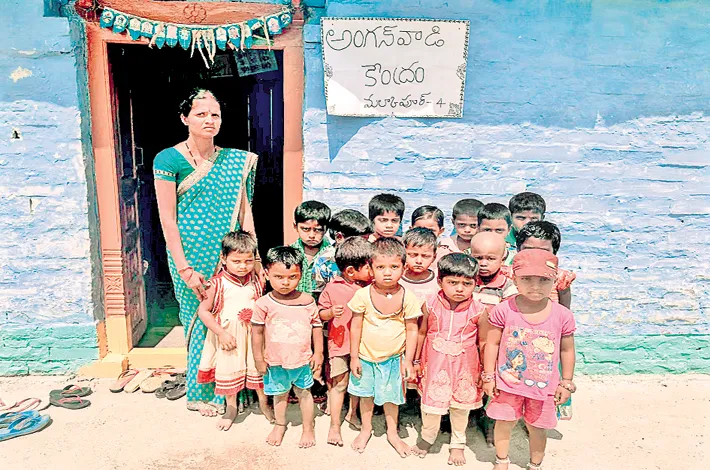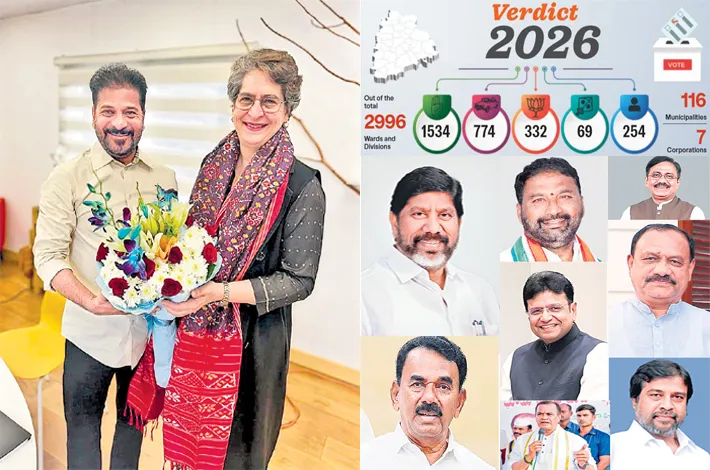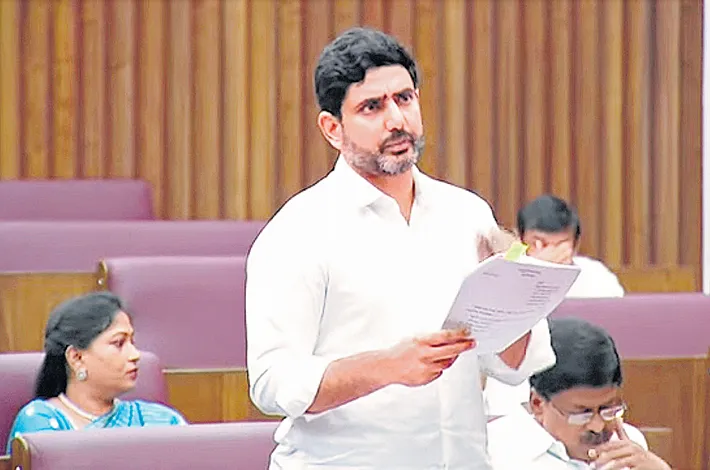Revamping Anganwadis into vibrant Pre-Primary Hubs using Empty Schools
19-08-2025 12:00:00 AM

Pilot program to kick off across 17 Districts from Sep.1
mahesh avadutha I hyderabad
In a big move to fortify the foundations of early childhood education, the Telangana government is transforming underutilized government school buildings into dynamic pre-primary classrooms for Anganwadi centers (AWCs). This innovative pilot initiative, spearheaded by Women and Child Welfare Minister Dr. Danasari Anasuya Seethakka, aims to address space constraints in single-room Anganwadis while ensuring every child gets a strong start in life. By repurposing zero-enrollment schools, the state is not just optimizing resources but also setting a national benchmark for integrated child development.
Minister Seethakka, in her statement, hailed the program as a unique endeavor unmatched across India. "Nowhere else are Anganwadis delivering pre-primary education on this scale. We're going beyond private play schools by providing quality education and care, preparing children for primary school and laying the groundwork for their golden futures," she said. She stressed that proper early intervention yields "positive outcomes throughout life," backed by numerous studies.
The pilot targets 34 AWCs across 17 districts, shifting them into co-located or zero-attendance government schools. This strategic relocation will enable age-wise pre-primary classes for children aged 3-4 and 4-5 years, focusing on functional literacy, numeracy, and holistic development. The centers will incorporate play-based learning, promoting free, universal, inclusive, equitable, joyful, and contextualized opportunities to build foundational skills.
The directive, outlined in a recent circular from the Director of Women Development and Child Welfare (WD&CW) Department, emphasizes the critical role of early education. Research highlights that the first few years of a child's life are pivotal for brain development, cognitive skills, and long-term success. "Studies show that the early developmental period has lifelong positive consequences for individuals and the nation," the circular notes, underscoring Telangana's commitment to high-quality, infrastructure-backed Early Childhood Education (ECE).
Key highlights from the identified schools include diverse locations: In Adilabad, the MPPS School in Pippalkhoti shifts to vibrant AWC operations; Jagtial's MPPS Kotilingala gets a new lease as a pre-primary hub; and Karimnagar's multiple sites like MPUPS Deshaipally and MPPS Gollapally-2 are set for transformation. Other districts like Nalgonda, Warangal, Mahabubnagar and Rajanna-Sircilla feature prominently, with schools such as MPPS Budidaredyguda and ZPHS (G) Pothugal ready to welcome young learners. The circular mandates immediate inspections by district officials, coordination with District Education Officers (DEOs), and commencement of classes by September 1, 2025, prioritizing safety and functionality.
This initiative isn't just about relocation—it's a holistic upgrade. Anganwadi teachers, now envisioned as "Vibrant ECE Centers," will receive training in child-friendly environments, fostering enthusiasm and well-designed learning. By utilizing idle infrastructure, Telangana avoids new construction costs while ensuring no child is left behind.
Seethakka envisions expansion: "By leveraging zero-enrollment schools, we're broadening access to quality early education statewide." As the pilot rolls out, it promises to inspire other states, turning empty classrooms into beacons of hope for Telangana's tiniest citizens. With this, the state is truly building a brighter, more equitable future—one playful lesson at a time.








